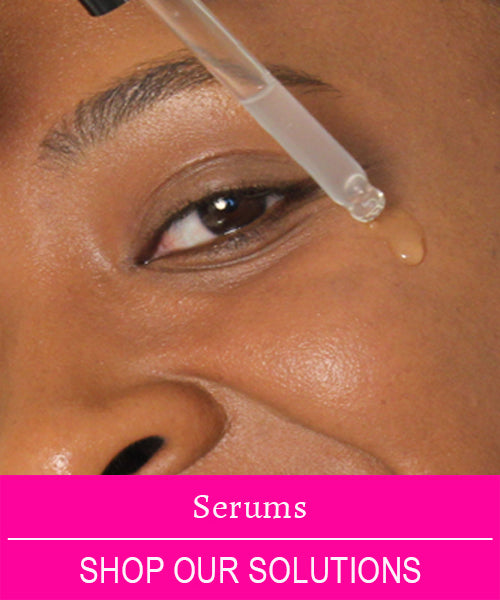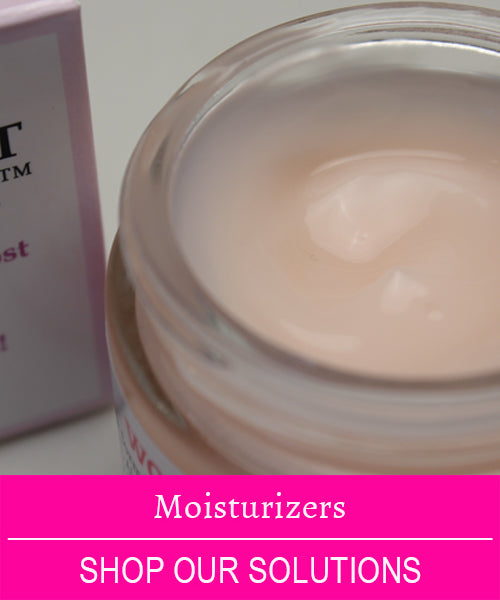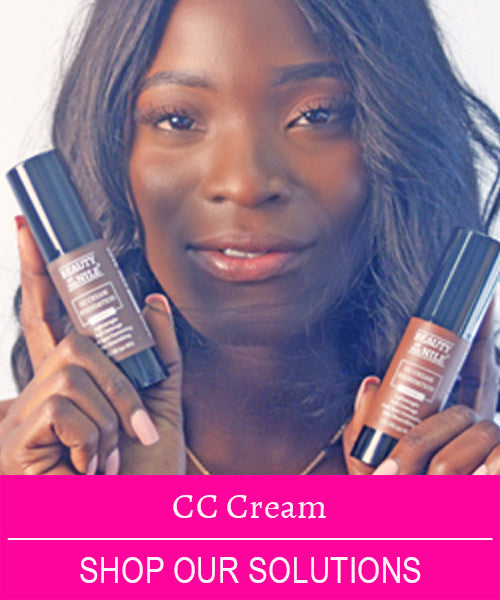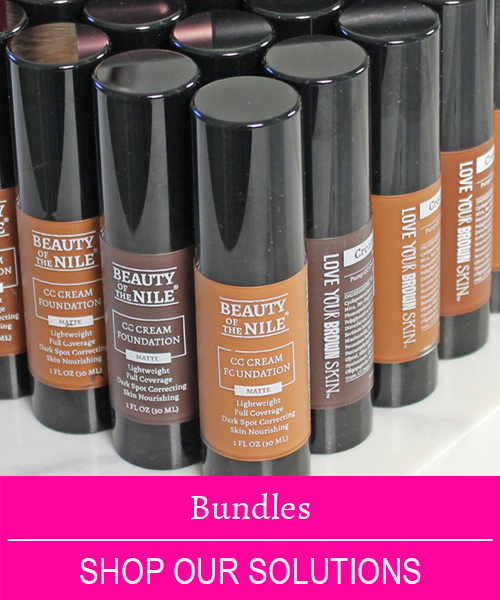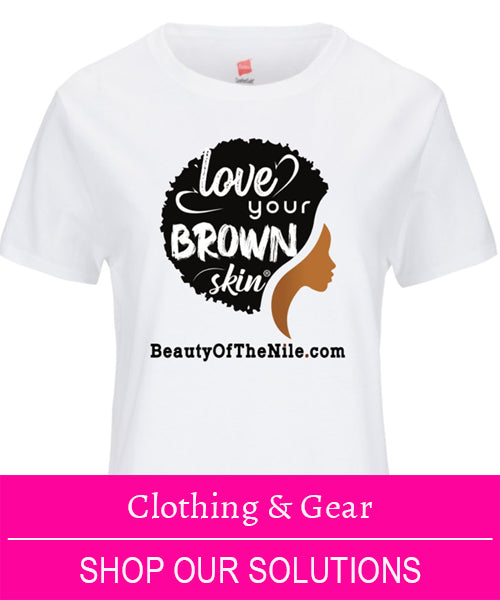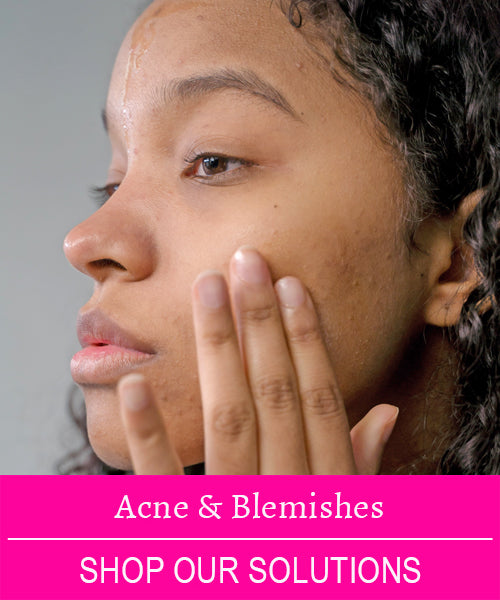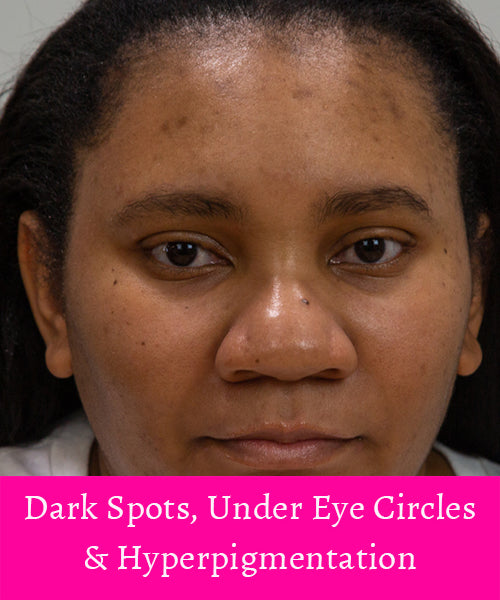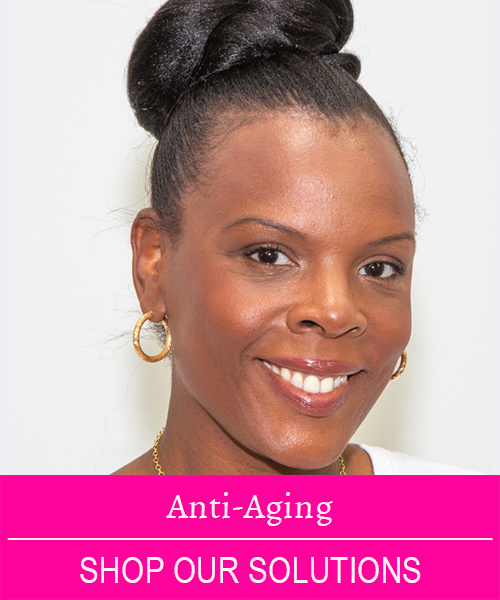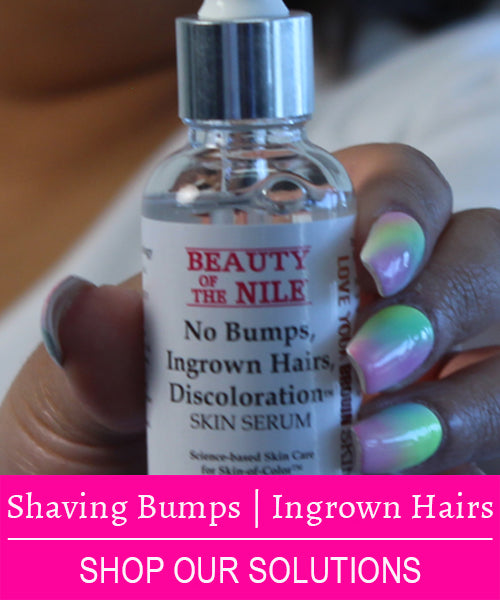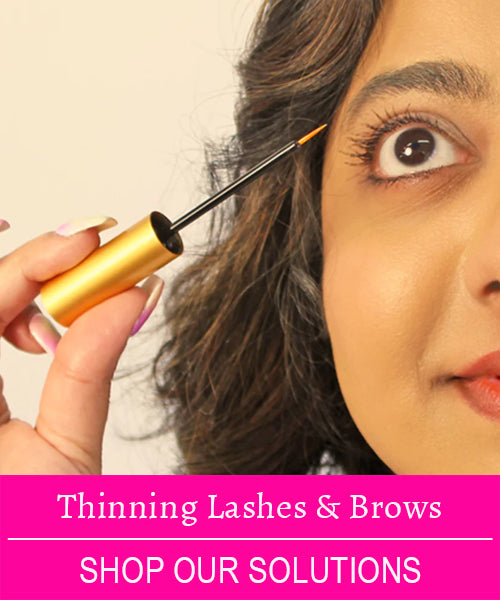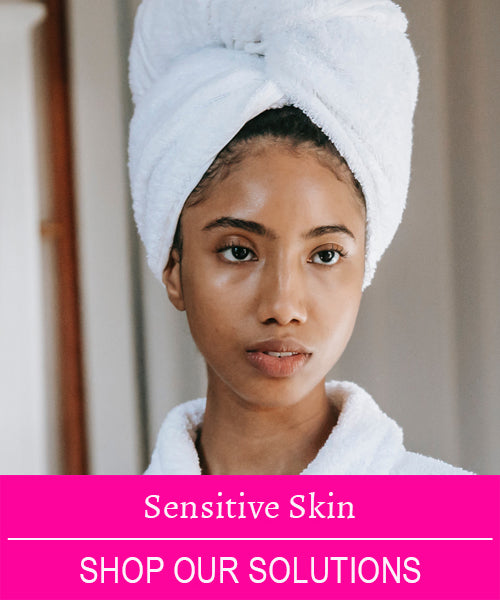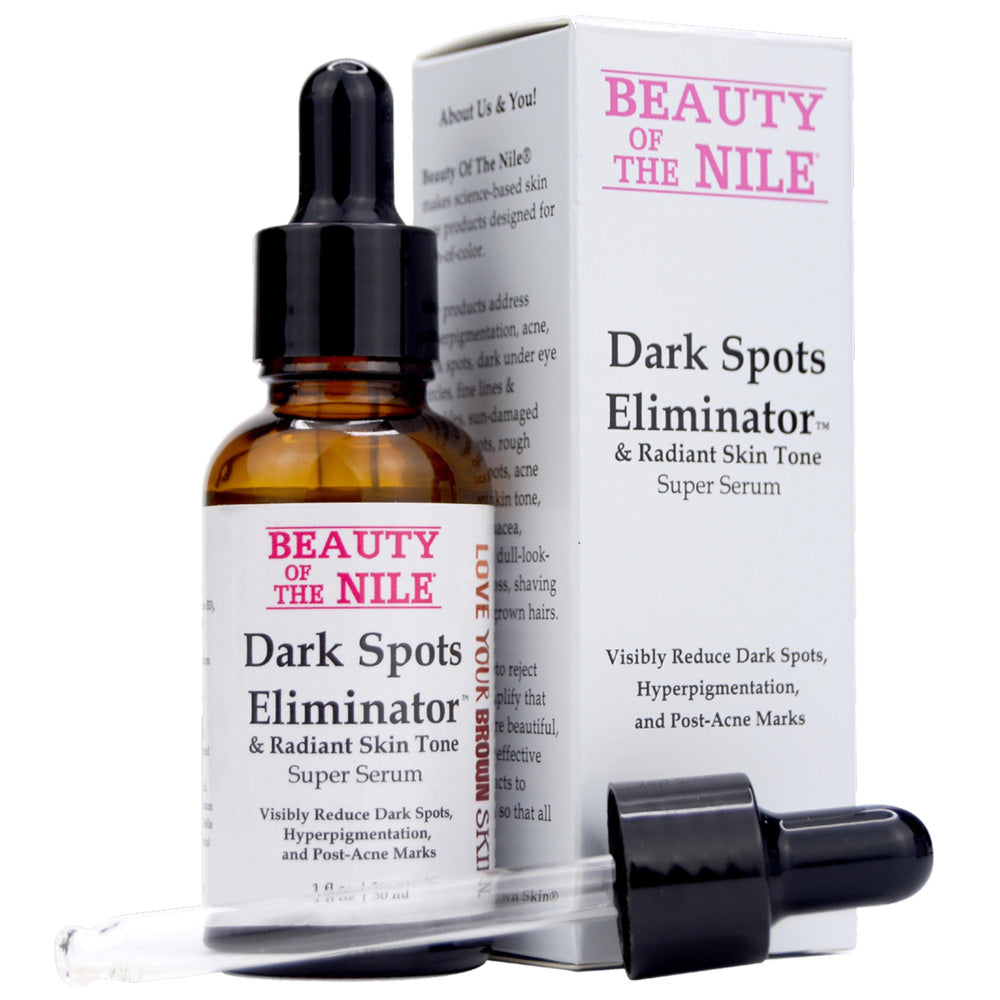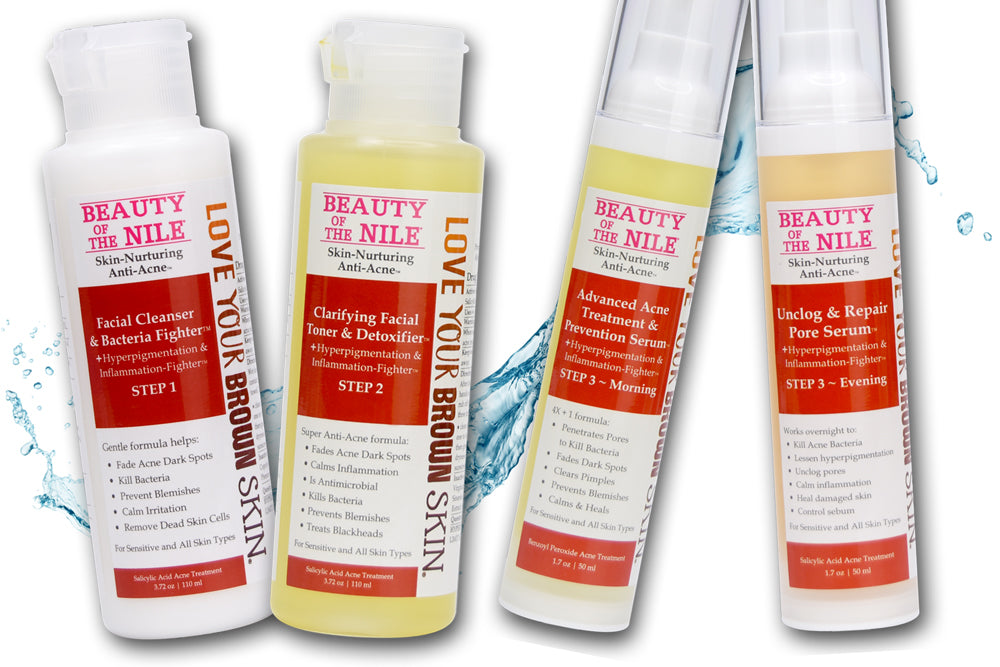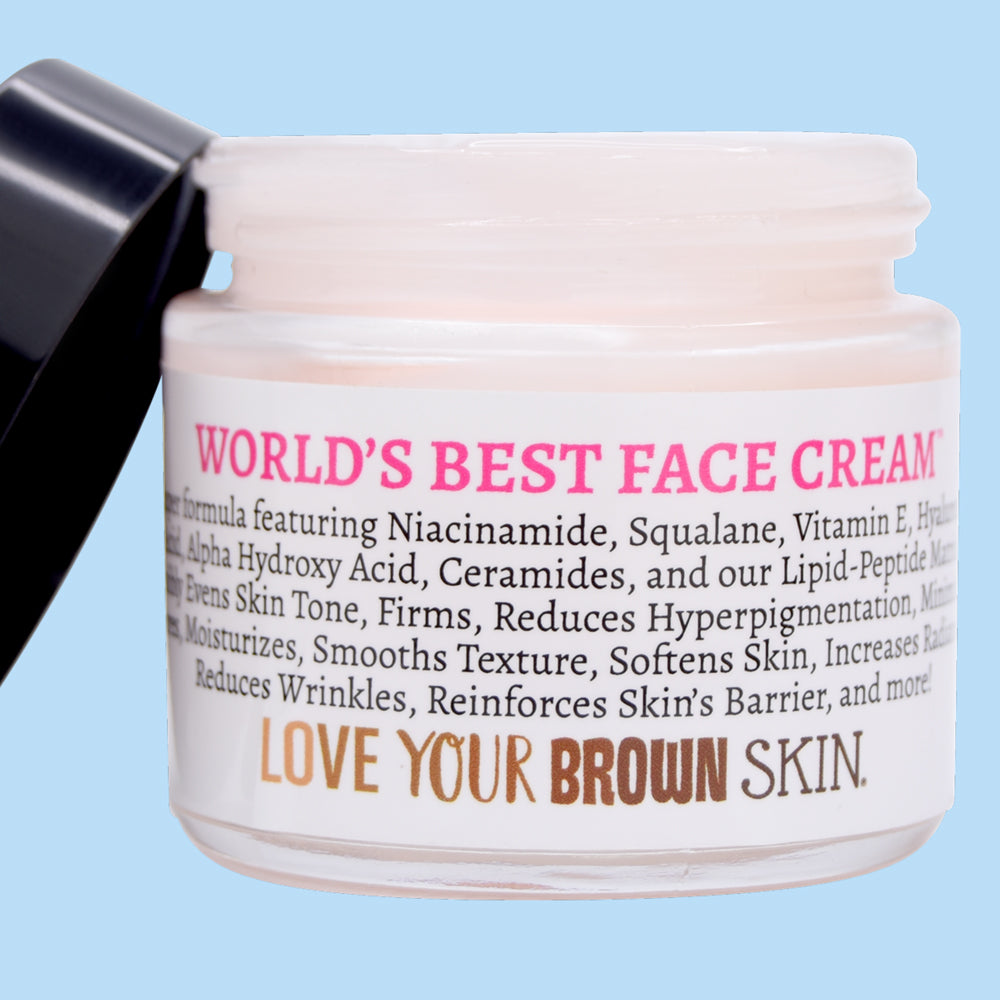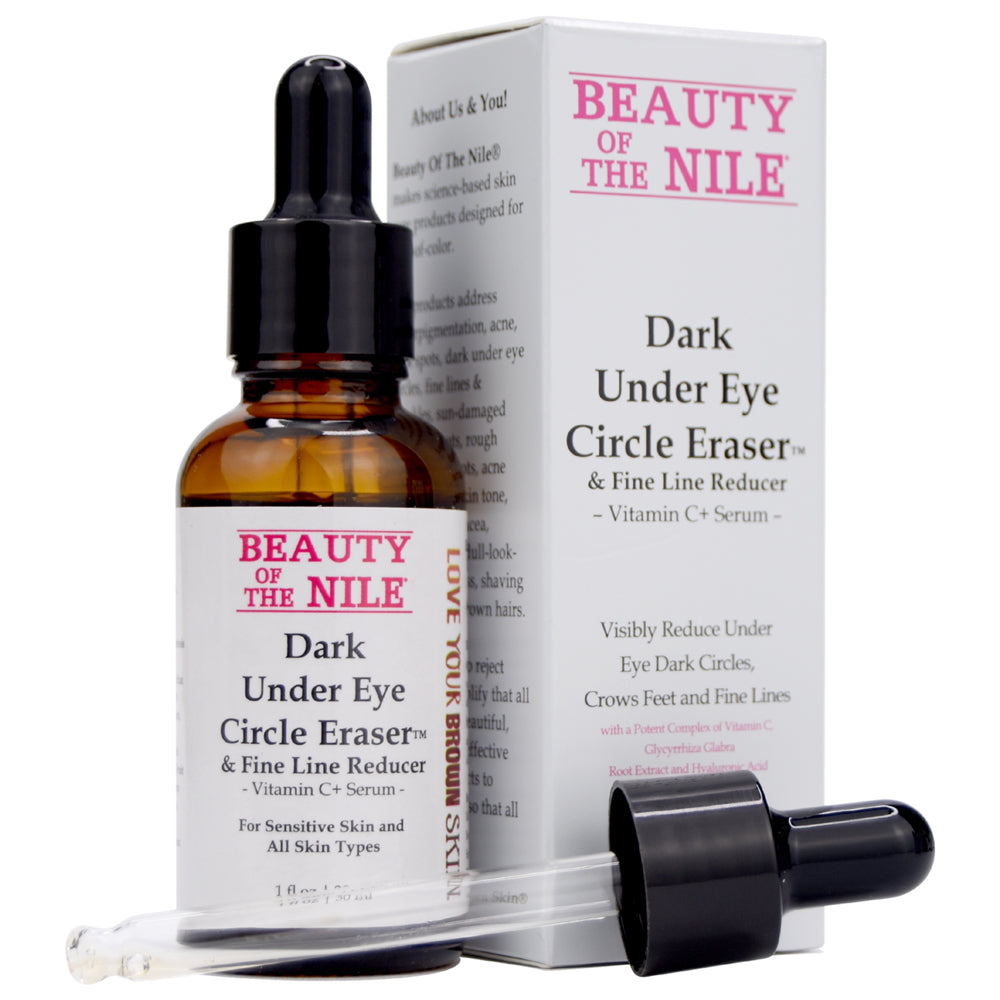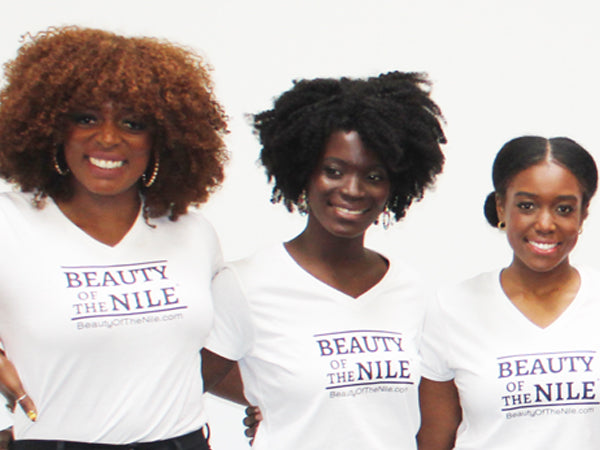Top 5 Reasons You Have Dark Spots on Your Skin-of-Color (and what you can do about it)
Dark spots can be a common concern for individuals with skin-of-color (like me. You too? Welcome to the club!). These spots are areas of the skin that have become darker than the surrounding skin due to an overproduction of melanin. Let's explore the top 5 reasons why you might have dark spots on your skin-of-color and provide actionable steps to address them.
Dark Spots Reason 1: Sun Exposure
Sun Exposure and Dark Spots: Prolonged sun exposure triggers the production of melanin to protect the skin from harmful UV rays. However, for individuals with skin-of-color, this can result in uneven melanin distribution, leading to dark spots.
What to Do About It:
- Sunscreen Is Your Best Friend: Use a broad-spectrum sunscreen with at least SPF 30 daily, even on cloudy days.
- Protective Clothing: Wear wide-brimmed hats, sunglasses, and long sleeves to shield your skin from direct sunlight.
Dark Spots Reason 2: Post-Inflammatory Hyperpigmentation (PIH)
PIH and Dark Spots: Inflammation caused by acne, eczema, or other skin conditions can lead to PIH. This is especially common in skin-of-color, where the healing process can stimulate excess melanin production, resulting in dark spots.
What to Do About It:
- Address Underlying Issues: Treat acne or skin conditions promptly to reduce the likelihood of PIH.
- Gentle Skin care: Use products with ingredients like niacinamide, vitamin C, alpha-arbutin, and retinol to promote skin healing and even out pigmentation.
Dark Spots Reason 3: Hormonal Changes
Hormonal Changes and Dark Spots: Fluctuations in hormones due to pregnancy, menstruation, or birth control can trigger melanin overproduction, causing dark spots known as melasma.
What to Do About It:
- Consult a Dermatologist: If melasma is a concern, seek professional advice for appropriate treatment options.
- Topical Treatments: Dermatologist-prescribed creams containing hydroquinone, azelaic acid, or kojic acid may help lighten dark spots.
HOW DARK SPOTS ELIMINATOR™ FADES DARK SPOTS
Dark Spots Reason 4: Friction and Skin Trauma
Friction and Dark Spots: Constant friction from clothing, accessories, or aggressive skin care routines can cause irritation and inflammation, leading to post-inflammatory hyperpigmentation.
What to Do About It:
- Choose Gentle Fabrics: Opt for soft fabrics to reduce friction against your skin.
- Handle with Care: Be gentle when applying skin care products, and avoid excessive rubbing or scrubbing.
Dark Spots Reason 5: Aging
Aging and Dark Spots: As skin ages, sun damage accumulates, and the skin's natural exfoliation process slows down, causing dark spots to become more noticeable.
What to Do About It:
- Exfoliation: Incorporate gentle exfoliation into your skin care routine to help remove dead skin cells and reveal fresher skin.
- Anti-Aging Ingredients: Look for products with antioxidants, hyaluronic acid, and peptides to support skin health and reduce the appearance of dark spots.
Bottomline
So, there you are. The Top 5 Reasons You Have Dark Spots on Your Skin-of-Color (and what you can do about it). Dark spots on skin-of-color can have a variety of causes, ranging from sun exposure to hormonal changes. By understanding these reasons and taking proactive steps, you can effectively address and manage hyperpigmentation. Remember, consistency is key, and it's always a good idea to consult a dermatologist for personalized advice and treatment recommendations tailored to your unique skin needs.
Dark Spots Eliminator™ Super Serum contains a proprietary mixture of Pro-Vitamin B5, Alpha-Arbutin, Niacinamide (Vitamin B3), Retinol, and Gotu Kola to penetrate dark spots and brighten skin for a more even complexion and radiant skin tone.

